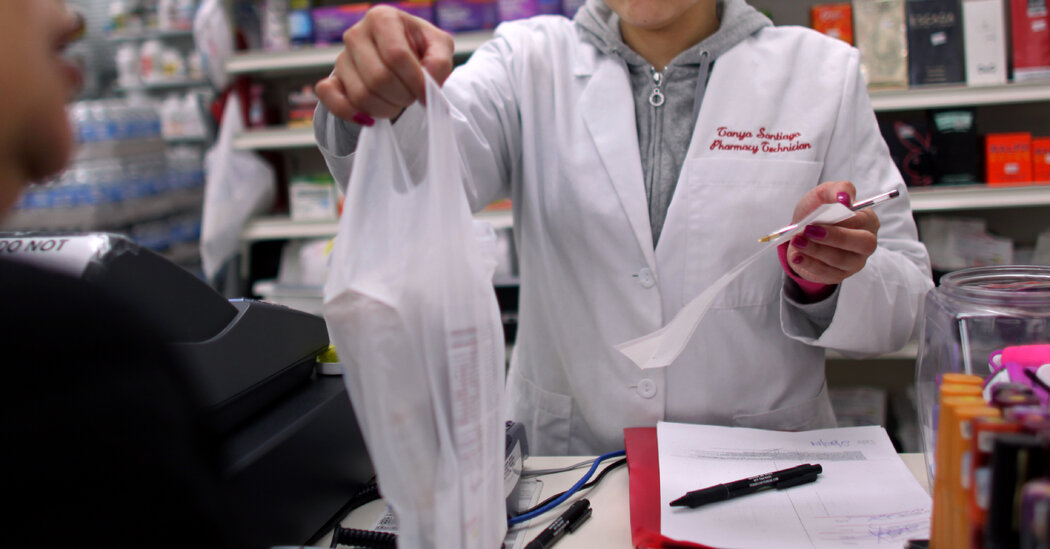Getting tested for sexually transmitted infections isn’t always easy.
It requires a trip to a doctor’s office or clinic — a challenge if you don’t have convenient options close by. Social stigma also remains a barrier for many, experts say.
The good news? It is getting even easier to test yourself for S.T.I.s.
The Food and Drug Administration recently authorized the first diagnostic test for chlamydia, gonorrhea and trichomoniasis that will be available without a prescription and can be performed entirely at home. The test is only for women, and can deliver results in about 30 minutes.
The Visby Medical Women’s Sexual Health Test is the latest advancement in home testing for S.T.I.s, coming on the heels of the authorization of the first at-home syphilis test in 2024. Experts expressed optimism that these tests could be an useful tool in the fight against S.T.I.s, which are often asymptomatic, but can cause devastating health complications.
“No one test is going to be the magic bullet,” said Dr. Aniruddha Hazra, medical director for the UChicago Medicine Sexual Wellness Clinic. “But the more tests we have — the more options we have for patients — all goes toward reducing the obstacles or barriers that folks face in terms of taking care of their sexual health.”
Home testing has its advantages.
Rates of S.T.I.s have surged in the United States for years. And while there is some evidence rates may be leveling off, there were more than 2.4 million new syphilis, gonorrhea and chlamydia infections diagnosed in 2023.
Despite the fact that testing is available for little to no cost at doctors’ offices around the country, people may not go because it is inconvenient, because they do not believe they are at risk or because they do not feel comfortable.
S.T.I.s are “very stigmatized,” said Dr. Gale Burstein, an adolescent medicine specialist with the University at Buffalo and the health commissioner for Erie County in New York. For that reason, testing in the privacy of one’s home can be an appealing option — and may help expand screening, Dr. Burstein said.
Dr. Burstein has found that young people may feel particularly uncomfortable approaching health care providers about testing, especially if they are concerned their parents will find out. But 15- to 24-year-olds made up almost half of all reported S.T.I. infections in 2023.
Still, many teens and young adults are enthusiastic about the prospect of at-home testing. In one recent survey of 763 adolescents and young adults between the ages of 14 and 24, nearly 70 percent of participants said they preferred the idea of testing at home to testing in person. And more than 90 percent said they would use a free S.T.I. kit.
Most S.T.I. tests on the market today are mail-in kits. That means users collect a specimen at home (a swab, urine sample or blood sample) and send it to the test kit provider for results, which are usually ready within a few days. Visby’s offering, by contrast, is a PCR test that will allow women to swab at home and get their results on an app.
But cost can be a barrier when it comes to home testing. Many home S.T.I. kits — which can be purchased online or in a pharmacy — cost $50 to $100 or more, which may not be covered by insurance. Visby Medical has not yet announced how much its new test will cost, though Adam de la Zerda, the company’s founder and chief executive, said he is in talks with insurance companies about potential coverage.
The pricing will play a major role in accessibility, Dr. Hazra said.
“One of the other things I take into consideration when thinking about at-home tests is: you need to have the resources to A) afford the test and B) an address to even get a test sent to,” Dr. Hazra said, noting that many of the patients he sees do not have stable housing or health insurance. “Some of these kits can be prohibitively expensive,” he cautioned.
It also has limits.
While at-home testing may help increase access for some people, experts emphasized it is not a stand-in for care.
A health care provider can offer guidance about what screening tests you should consider — and how often you might need to take them. (The Centers for Disease Control and Prevention also offers comprehensive testing recommendations based on age, gender and sexual activity.)
Anyone who tests positive for an S.T.I. should connect with a health care provider as soon as possible, said Dr. Robert A. Pitts, an infectious diseases specialist at NYU Langone Health. That’s not only important for prompt treatment, but also so that providers can answer questions and offer guidance on topics like how to talk to past and future partners and preventing future infections.
Home tests are “a great way to expand our reach of sexual health services to patient populations that have a hard time getting to sexual clinical services,” Dr. Pitts said.
“But,” he cautioned, “they don’t stand alone.”




